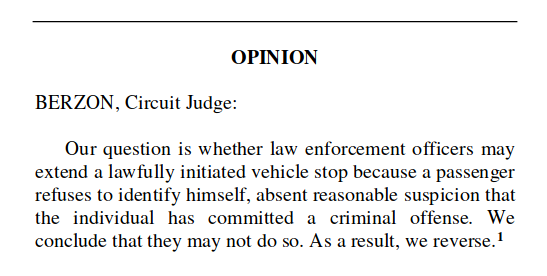9th Circuit: Passengers in a car don’t have to identify themselves
Passengers in a car stopped by police don’t have to identify themselves, according to the 9th Circuit Court of Appeals.
That holds even in a state with a “stop and identify” law, and even if the initial stop of the car (for a traffic violation committed by the driver) was legal.
The opinion by a three-judge panel of the 9th Circuit earlier this month in US v. Landeros is one of the most significant decisions to date interpreting and applying the widely-misunderstood 2004 US Supreme Court decision in Hiibel v. Nevada.
Many police think that the Hiibel decision upheld the Constitutionality of requiring anyone stopped by police to show ID. But that’s not what the Supreme Court actually said.
The 9th Circuit panel that decided US v. Landeros read the Hiibel decision carefully and correctly, and gave important and explicit guidance on the narrowness of its findings and what it actually means for people who are stopped and asked for ID by police.
What does this mean for you, especially when or if you are in the 9th Circuit or want to raise the 9th Circuit’s latest decision as persuasive authority in another circuit?
